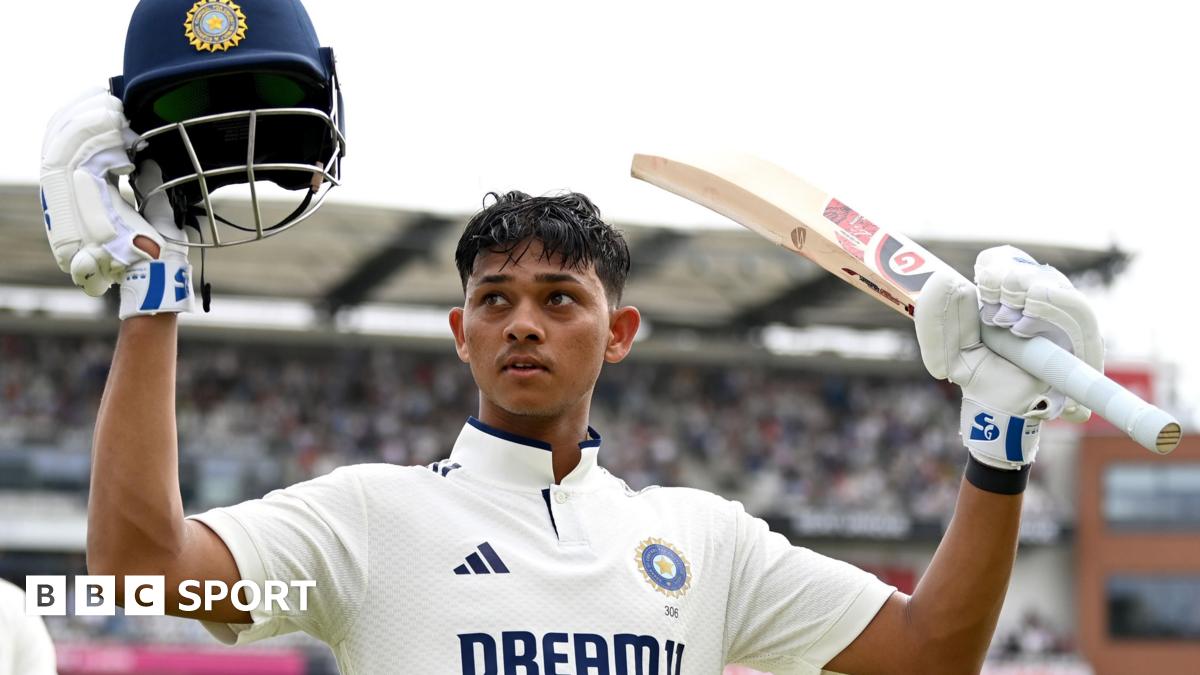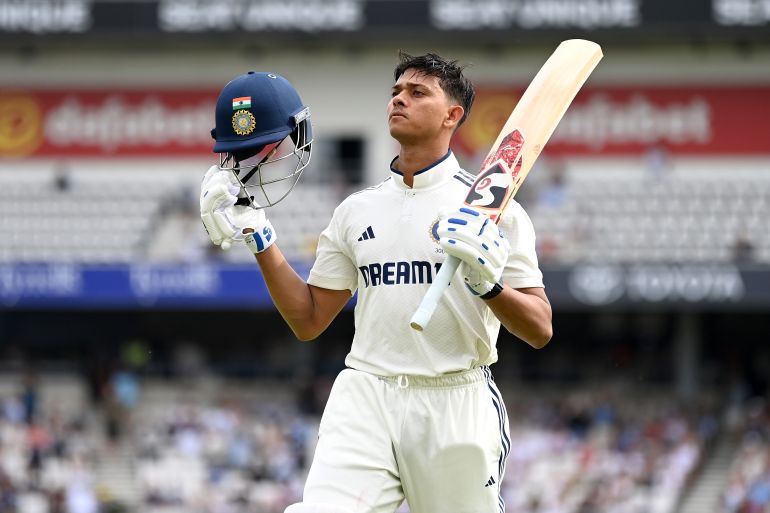Here’s where things stand on Friday, June 20:
Fighting
- Israel said on Friday that it had struck dozens of military targets in Iran overnight, including Tehran’s Organisation of Defensive Innovation and Research, missile production sites and military facilities in western and central Iran.
- The Israeli military said it struck surface-to-air missile batteries in western Iran, killing a squad of Iranian soldiers on the move during the operation, including a commander of an Islamic Revolutionary Guard Corps (IRGC) base.
- Israeli Defence Minister Israel Katz said he had instructed the military to intensify attacks on “symbols of the regime” and “mechanisms of oppression” in the Iranian capital, Tehran, aiming to destabilise it.
- Air defence systems were activated in Bushehr in southern Iran, the location of the country’s only operating nuclear power plant, according to the Young Journalists Club, cited by state broadcaster IRIB.
- Iran’s IRGC said it had fired its 17th wave of missiles at Israeli military facilities, including the Nevatim and Hatzerim bases.
- Iran fired missiles at Beersheba in southern Israel, with initial Israeli media reports also pointing to missile impacts in Tel Aviv, the Negev and Haifa. Iran said that the “precise hits” demonstrated “our offensive missile power is growing”.
- The Fars news agency quoted an Iranian military spokesperson as saying Tehran’s missile and drone attacks on Friday had used long-range and ultra-heavy missiles against Israeli military sites, defence industries and command and control centres.
Casualties and disruptions
- Israel’s attack on Tehran’s Organisation of Defensive Innovation and Research, which it says is involved in Iran’s alleged nuclear weapons development, killed a nuclear scientist, according to Israeli media reports.
- Iranian media reported that an industrial plant involved in the production of carbon fibre in northern Iran was damaged in an attack.
- Iran’s health ministry said a third hospital in Tehran had been struck by Israeli bombs, according to state news agency IRNA.
- At least five people were injured when Israel hit a five-storey building in Tehran housing a bakery and a hairdresser’s, Fars news agency reported.
- Iranian news outlet Asriran said that a drone attacked an apartment in a residential building in the Iranian capital’s central Gisha district.
- The Human Rights Activists News Agency, a US-based human rights organisation that tracks Iran, said that Israeli air attacks have killed 639 people in the country. Israeli authorities had previously said 24 civilians had been killed in Iranian attacks.
- Israel’s Magen David Adom rescue service said its teams were providing treatment to 17 people, three in serious condition, after Iran’s strikes.
- Israeli railway officials told local media that, due to the Iranian missile strike on Beersheba, the city’s north station was temporarily closed.
- Afghanistan’s agriculture minister said his country was in discussions with Russia to import certain foodstuffs as the conflict between Israel and Iran, one of its largest trading partners, risked cutting off supplies.
Protests
- Tens of thousands of people attended anti-Israel protest marches in Tehran, as well as other major Iranian cities, including Isfahan, Shiraz, Mashhad and Qom.
- Demonstrators in southern Beirut, Lebanon held a pro-Iran rally after Friday prayers.
- Thousands of Iraqis gathered for Friday prayers in Baghdad’s Sadr City, a suburb with a large Shia population, chanting against the US and Israel amid the attacks on Iran.
- Pro-Palestinian activists in the UK broke into the Royal Air Force Brize Norton base in Oxfordshire and damaged two aircraft.
Politics
- US President Donald Trump told reporters on Friday that his director of national intelligence, Tulsi Gabbard, was wrong to suggest there is no evidence Iran is building a nuclear weapon. “Well, my intelligence community is wrong,” he replied when asked about Gabbard’s position. Trump also said that while he “might” support a ceasefire deal between Israel and Iran, “Israel’s doing well in terms of war, and I think you would say that Iran is doing less well”.
- Iranian President Masoud Pezeshkian said the only way to end the conflict was for Israel to stop its air attacks, warning that “failure to do so would result in a far more forceful and regrettable response from Iran”.
- Russian President Vladimir Putin said in St Petersburg that Moscow was sharing ideas with “our Israeli and Iranian friends” about how to end the bloodshed and said he believed there was a diplomatic solution.
- US Treasury Secretary Scott Bessent announced new Iran-related sanctions aiming to disrupt Tehran’s efforts to “procure the sensitive, dual-use technology, components, and machinery that underpin the regime’s ballistic missile, unmanned aerial vehicle, and asymmetric weapons programs”.
- Qatari Prime Minister Sheikh Mohammed bin Abdulrahman Al Thani said in a phone conversation with Norway’s Foreign Minister Espen Barth Eide that Israel targeting economic facilities in Iran could lead to catastrophic regional and international repercussions.
- French President Emmanuel Macron said there was “no justification” for strikes on civilians and on civilian infrastructure in the weeklong conflict, adding that Tehran should show its willingness to return to the negotiating table concerning its nuclear programme.
- Kremlin spokesperson Dmitry Peskov said in comments carried by state news agency TASS that potential use of tactical nuclear weapons by the US in Iran would be a catastrophic development.
- German Chancellor Friedrich Merz and Turkish President Recep Tayyip Erdogan discussed the ongoing conflict between Israel and Iran over a phone call, a German government spokesperson said.
- UK Foreign Secretary David Lammy said his country was working with Israeli authorities to arrange charter flights for British nationals from Tel Aviv when Ben Gurion International Airport reopens.
Diplomacy
- The United Nations Security Council met at its headquarters in New York to discuss the situation between Iran and Israel.
- Rafael Grossi, director of the International Agency for Atomic Energy, warned against attacks on nuclear facilities at the meeting, saying a strike on the Bushehr nuclear plant could cause “radioactive releases with great consequences” beyond Iran’s borders. He called for “maximum restraint”.
- UN Secretary-General Antonio Guterres said at the meeting that expansion of the Israel-Iran conflict could “ignite a fire no one can control”, calling on both sides to “give peace a chance”.
- Iran’s UN ambassador Amir Saeid Iravani urged the Security Council to take action, saying the country was “alarmed by credible report[s] that the United States … may be joining this war”.
- Israel’s UN ambassador, Danny Danon, pledged at the UNSC that there would be no letup in attacks on Iran. “Not until Iran’s nuclear threat is dismantled, not until its war machine is disarmed, not until our people and yours are safe,” he said.
- Russia’s envoy Vassily Nebenzia stressed that Israel attacked Iran on the eve of a round of nuclear talks and accused Israel of showing a blatant disregard for attempts to find a diplomatic solution to end the conflict.
- Iraq’s representative to the UN, Abbas Kadhom Obaid al-Fatlawi, said 50 Israeli warplanes from the Syrian-Jordanian border areas violated Iraqi airspace shortly before the Security Council meeting.
- Iranian Foreign Minister Abbas Araghchi attended a meeting in Geneva with France, the United Kingdom, Germany and the European Union’s foreign policy chief, which appeared to yield no breakthrough.
- Araghchi told reporters in Geneva that Iran would be ready to consider diplomacy “once the aggression is stopped and the aggressor is held accountable for the crimes committed”. Earlier, he accused Israel of a “betrayal of diplomacy” in a speech to the UN Human Rights Council.
- French Foreign Minister Jean-Noel Barrot told reporters after the Geneva talks that Araghchi had signalled “his willingness to continue these discussions on the nuclear programme and, more broadly, on all issues”.
- British Foreign Minister David Lammy said European ministers in Geneva had made it clear that “Iran cannot have a nuclear weapon”.
- Germany’s Defence Ministry said that it had flown 64 people out of Israel, describing the flights as a “diplomatic pick-up” and not a military evacuation mission, which would have required parliamentary approval.
- Ireland’s Foreign Minister Simon Harris announced his country would temporarily relocate embassy personnel from Tehran “in light of the deteriorating situation”.
- The UK said it was temporarily withdrawing staff from its embassy in Iran, saying the embassy continued to “operate remotely”.
- Switzerland’s Federal Department of Foreign Affairs said it had decided to temporarily close its embassy in Iran, citing intense military operations there.
- Australia also said it had suspended operations at its embassy in Iran. Foreign Minister Penny Wong said a “crisis response team” was being sent to neighbouring Azerbaijan to support Australians departing Iran by road.
- Slovakia and the Czech Republic also announced the temporary closure of their embassies in Tehran.
- British police arrested eight men on Friday, including seven on suspicion of grievous bodily harm, following reports of an altercation involving pro and anti-Iranian protesters at a location close to the Iranian embassy in London.




